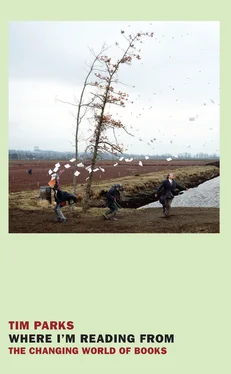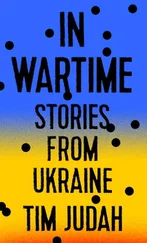I had started the editing process in a spirit of easygoing cooperation, determined to set aside any pride in Englishness and work to produce the best package possible for an American public. After all, the work was being paid for by an American publisher, and my commissioning editor had proved extremely helpful when it came to discussing the shape of the book. But doubts soon arose. Prose is not something that remains the same when words are substituted— jeans for dungarees , for example—or when one synonym is preferred to another. Rhythm is important, and assonance likewise. Ninety-eight uses of a two-syllable carriage are not the same as ninety-eight occurrences of a single-syllable closed- o coach . This is why, statistically, assonance, alliteration, and rhythm tend to be weaker in translations than in original texts; consciously or otherwise a writer, even of the least ambitious prose, is guided by sound, while the language itself is constantly forming standard collocations of words around pleasantly assonant combinations—fast asleep, wide awake. Any intervention in these patterns, whether simply substituting words to suit a local use of the same language, or, more radically, translating into another language, disturbs the relationship between sound and semantics.
But my train book isn’t just a text written by an Englishman to be published in America. It’s about Italy, the Italians, how they see things, their mental world. One of the ways one can get across the difference is to focus on words or usages that don’t quite translate—the appearance of coincidenza , for example, in station announcements, which can mean a planned and timetabled train connection, or a quite unplanned, unexpected development to which an urgent response is required, such as a last-minute platform change. Over these matters the American editor dutifully followed. But where I had written mamma and papà , the edit had transformed to mamma and pappa . This rather threw me, in part because I had assumed that Americans said mama and papa , but mostly because papà is accented on the second syllable, whereas in Italian pappa , with the accent on the first syllable and that double p that Italians, unlike Anglo-Saxons, actually pronounce, is a word for mush, or baby food.
Despite my hailing from England—a country that still uses miles—I had expressed distances in meters and kilometers and it seemed odd now to find my Italian characters speaking to each other about yards and miles and, of course, Fahrenheit, which they never would. Or saying AM and PM, rather than using the twenty-four-hour clock as they mostly do, even in ordinary conversation. Slowly, as well as being concerned that some sentences were now feeling clunky and odd, I began to wonder if American readers really needed or demanded this level of protection. Wouldn’t they soon figure out, if I said “the temperature was up in the sizzling thirties,” that I was talking Celsius? Or at least that in another part of the world people had another system for measuring temperature according to which thirty was considered warm? Mightn’t it be fascinating for them to be reminded that the twenty-four-hour clock, which Americans usually associate with military operations, has long been in standard civilian usage in Europe? Italy introduced it as early as 1893.
Or again, does a newsagent really need to become a news dealer , a flyover an overpass , a parcel a package , or in certain circumstances between among and like such as ? Does the position of also really need to be moved in front of the verb to be in sentences like “Trains also were useful during the 1908 earthquake in Catania,” when to me it looked much better after it? And does making these relatively small changes really make the text 100 percent American anyway? One thinks of how thoroughly the Harry Potter novels were Americanized for their US editions: would they really have sold fewer copies had the Anglicisms been kept? Wasn’t half the charm of the series its rather fey Englishness (occasionally Scottishness)? Would we Americanize the Irish Joyce? Or again, if we want to have language conform to local usage, what about considering chronology as well as geography? Shouldn’t we bring Dickens, Austen, Fielding, and Shakespeare up to date? Make it easier? Forget that language is constantly changing and different everywhere?
Turning page after page of the copy editor’s notes, I began to make connections between this editing process and many of the things I have written about here. America is very much a net exporter of literature. Its novels are read and translated worldwide, where readers generally accept miles and Fahrenheit, pounds and ounces, AM and PM, and indeed have grown accustomed to these old-fashioned, American oddities (when it comes to doing science, of course, Americans use the more practical European systems). In Germany, for example, where around 50 percent of novels are foreign works in translation, Roth’s and Franzen’s characters are not obliged to discuss distances in kilometers.
Conversely, America imports very little—only 3 to 4 percent of novels published in the States are translations—and what it does import it tends to transform as far as possible into its own formulas and notations, in much the same way that Disney has turned every fable and myth worldwide into a version of Mickey Mouse. This situation is a measure of American power, but brings with it the danger of mental closure and inflexibility. Speaking recently at a conference in Milan, the Italian literary agent Marco Vigevani lamented that fewer and fewer American editors are able to read novels in Italian, French, and especially German, and this inevitably has reduced their enthusiasm for publishing foreign literature, since they are obliged to rely on external readers for advice.
Travel books are popular, likewise novels set in distant exotic countries, suggesting an appetite for awareness of other societies and their different lifestyles. But how far can literature really expose us to another world if everything is always returned to the reassuring medium of our own language exactly as we use it , with all our own formulas, dimensions, accents, and habits? More than anything else, what makes a foreign country foreign and difficult is its language, and though we can’t be expected to learn a new language for every country we want to know about, it seems important to be reminded of the language, reminded that one’s own language is not the supreme system for understanding the world, but just one of thousands of possibilities. Does anybody in the end really know with absolute certainty, all the differences between American and English usages? Aren’t there a wide range of usages in both these countries? How can I know, when I see a particular edit, if it is an Americanism I have to accept, or a matter of individual taste I can take issue with?
And all this without mentioning house style, that frighteningly powerful dye which, in some magazines, turns every contributor’s prose the same color. In my train book, for example, after a few pages discussing the fate of Italian railways under Nazi occupation, I begin a new paragraph “2,104 railwaymen died in the war”: to my ear the bare number has exactly the brutal eloquence that such statements demand. But I find this changed to “A total of 2,104 railwaymen died in the Second World War.” What is the sense of a total of ? Surely it’s not a requirement of Americanization. What does it add? I have to presume that some house style forbids me from opening a paragraph with a number. Why? This whole question may seem a quite different matter from the contrast between Americans Americanizing and Europeans accepting Americanisms, but the truth is that house style is a much more common occurrence in the US and more aggressively enforced, to the point that when one rereads work one has written for The New Yorker it no longer seems like one’s own voice at all. I can think of no similar experience with English or European magazines, as I can remember no experience quite like my tussle over tense changes for the American edition of my book Medici Money .
Читать дальше












